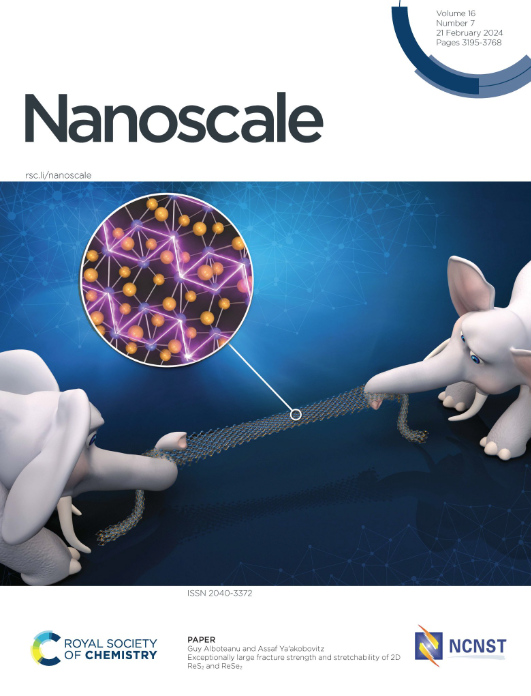Quantum dot-based memristors for information processing and artificial intelligence applications
IF 5.8
3区 材料科学
Q1 CHEMISTRY, MULTIDISCIPLINARY
引用次数: 0
Abstract
Traditional computing systems struggle to keep pace with the development of artificial intelligence, as well as the development of the economy and continuous innovation in science and technology. Therefore, there is an urgent need for a new generation of powerful yet low-power computing technologies to replace them. Quantum dots have been incorporated into memristors due to their unique electrical properties, and the development of quantum dot memristors is expected to solve the problems faced by traditional memristors, including cycle stability, high energy consumption, and conductivity uniformity. This article reviews the research progress of quantum dot memristors and their simulation applications in artificial synapses. It summarizes some of the current challenges faced in the development of quantum dot memristors and discusses the potential future applications of these memristors in the field of artificial intelligence.

用于信息处理和人工智能应用的基于量子点的忆阻器
传统的计算系统努力跟上人工智能的发展,以及经济的发展和科学技术的不断创新。因此,迫切需要新一代强大而低功耗的计算技术来取代它们。量子点由于其独特的电性能而被引入到忆阻器中,量子点忆阻器的发展有望解决传统忆阻器所面临的循环稳定性、高能耗和电导率均匀性等问题。本文综述了量子点记忆电阻器的研究进展及其在人工突触中的模拟应用。总结了目前量子点忆阻器发展面临的一些挑战,并讨论了这些忆阻器在人工智能领域的潜在应用前景。
本文章由计算机程序翻译,如有差异,请以英文原文为准。
求助全文
约1分钟内获得全文
求助全文
来源期刊

Nanoscale
CHEMISTRY, MULTIDISCIPLINARY-NANOSCIENCE & NANOTECHNOLOGY
CiteScore
12.10
自引率
3.00%
发文量
1628
审稿时长
1.6 months
期刊介绍:
Nanoscale is a high-impact international journal, publishing high-quality research across nanoscience and nanotechnology. Nanoscale publishes a full mix of research articles on experimental and theoretical work, including reviews, communications, and full papers.Highly interdisciplinary, this journal appeals to scientists, researchers and professionals interested in nanoscience and nanotechnology, quantum materials and quantum technology, including the areas of physics, chemistry, biology, medicine, materials, energy/environment, information technology, detection science, healthcare and drug discovery, and electronics.
 求助内容:
求助内容: 应助结果提醒方式:
应助结果提醒方式:


